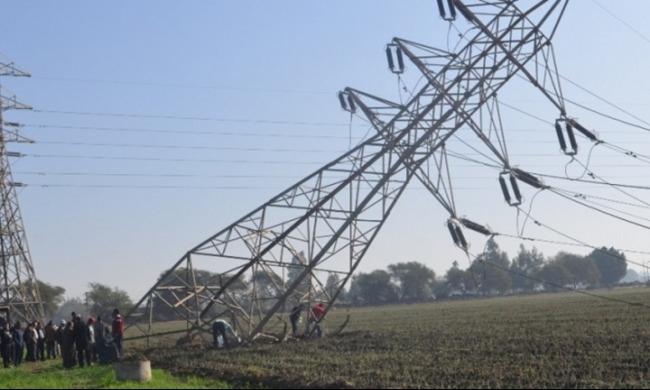Commenting on the ISIS attack, Ahmed Mousa said: The terrorists destroyed the power grid facilities through roadside bombs in order to deactivate the facility. The transmission line had a capacity of 400 megawatt hours, and experts from the Ministry of Electricity, with the support of security forces, are working to compensate for the damage and rebuild the facility.
Most of Iraq’s Diyala Province is supplied with electricity through Iran. The main load of this network is the responsibility of the two lines of Mersad and Sar Pol-e Zahab with capacities of 400 and 120 MWh. In addition, there is a smaller line from Marivan to Panjwein with a transmission capacity of 10 MWh, which mainly plays a supporting role. Thus, it is clear that more than half of the province’s electricity is dependent on the Mersad line to Diyala, and with the mentioned attack, we will see a widespread blackout in that strategic province.
At first glance, this news may not seem so important, but it should be considered from two very important aspects; ISIS activity in Diyala border province and more importantly the importance of electricity in Iraq…
Iraq continues to be the main hotbed of ISIS terrorists, which has increased its terrorist activities in the country with the support of the United States and some Arab regimes in the region. According to the official statistics of this terrorist organization, in 2020, a total of 1422 terrorist operations were carried out in Iraq, and this country is by far the first in the activities of the ISIS. The ISIS has also released eight films from Iraq since the defeat of Baghuz, which is twice as much as Syria, which ranks second. Those cases show that Iraq is still the main target of the leaders of the ISIS terrorist group.
The main areas infected with terrorism in Iraq are “Jabal Makhoul”, “Western Sahara” (Al-Anbar) and the suburbs of “Lake Samarra”, respectively. Jabal Makhoul is a mountain range that stretches from the southwest of Nineveh Province and the northwest of Kirkuk Province to the north of Diyala Province, and its mountainous and impassable texture is a suitable platform for the continued presence of ISIS terrorists. In this way, the ISIS terrorists can take large areas in several provinces of Diyala, Kirkuk, Nineveh, and even Salah al-Din and Erbil for their harassment operation.
Reference book for ISIS policy in Iraq
Despite the criticisms leveled by the ISIS during the caliphate against Abu Bakr al-Naji, author of the book “Management of Savagery”; evidence shows that in the period of obedience, this book was one of the sources of ISIS strategic policy-making. Strategically, one of ISIS strategic sources in the current period is Abu Bakr al-Naji, who wrote strategies for a period when it is not possible to establish a caliphate. One of the proposed strategies is to “kill enemies and foes”! During this period, when they have little power, they try not to mobilize their enemies against themselves, but try to kill their enemies. In this regard, activities in the disputed areas between Erbil and Baghdad are a high priority. One of the disputed areas of Erbil and Baghdad is the northern region of Diyala Province, centered on the city of Khanaqin.
Statistics on ISIS performance in Iraq during 2020
According to official statistics for 2020, released by the Amaq News Agency (the official organ of ISIS), Iraq is the most important country for the ISIS leaders, and the largest number of operations, as well as propaganda videos of this group, belong to Iraq.
The second issue that the ISIS pursues in its attacks is the issue of “increasing public dissatisfaction with the government”, which is one of the goals of the “period of obedience” (a period in which it is not possible to establish an Islamic government). In this regard, the destruction of public service infrastructure is among the operational goals of the ISIS.
In view of the cases mentioned above, the ISIS considers the attack on the electricity grid facilities as one of its serious goals, which has become more important in recent months. Last year, the ISIS attacked power distribution network facilities a total of 28 times; but in the past week alone, the Iraqi electricity transmission and distribution network has been attacked at least five times, three of which are in the capital! In the summer, temperatures in most parts of Iraq reach more than 50 degrees Celsius, and any disruption to the electricity distribution network causes dissatisfaction among citizens.










0 Comments